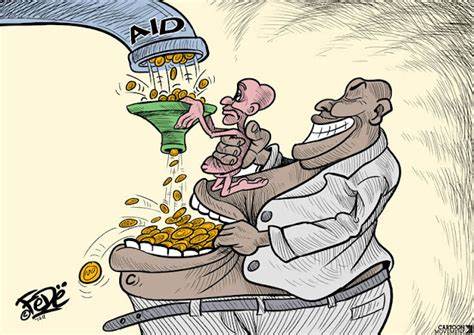While Africa boasts some of the world’s fastest-growing economies, abundant natural resources, and a youth population brimming with innovation and energy, the continent remains shackled by a deep-rooted enemy — corruption. It is not just a nuisance or an inconvenience. It is a cancer. A silent looter of futures. A deliberate, well-dressed crime that wears the face of politics, business, and even religion.
Corruption in Africa is not just about brown envelopes exchanged under the table. It is institutional. It is systemic. And worst of all, it is normalized. From government offices in Lagos to mining contracts in Kinshasa, from education funds in Nairobi to aid money in Ouagadougou — corruption bleeds the continent dry before development can take root.
Billions are stolen annually by leaders entrusted to serve the people. Roads are left unfinished, hospitals lack basic medicine, schools operate without textbooks, and millions remain unemployed — not for lack of resources or talent, but because those in power have turned governance into a cash register.
The Cost of Looking Away
African nations lose an estimated $140 billion each year to corruption — money that could transform lives, build infrastructure, and fuel sustainable development. Instead, it lines the pockets of a few, often under the false justification of entitlement, tribal loyalty, or political reward.
But this is not just about figures. It is about funerals for children who die because their local clinic has no supplies. It is about students forced to drop out because a government scholarship never came. It is about investors pulling out because “pay-to-play” is the only rule that works. Corruption kills — dreams, dignity, and sometimes, people.
The Culture of Silence
What makes Africa’s corruption crisis more devastating is the dangerous culture of silence and complicity. Whistleblowers are persecuted, not protected. Citizens are told to pray instead of protest. And youth — the continent’s hope — are being taught that loyalty matters more than integrity.
Until the average African stops seeing corruption as a distant political issue and starts treating it as a personal enemy, nothing will change.
Conclusion: The Real Independence We Need
Africa will not develop until it wins the war against corruption. Not with slogans or hollow “anti-graft” agencies, but with systemic change, fearless accountability, and the collective will of its people to say: Enough is enough.
The time has come for Africa to stop begging for aid while watching its wealth flow into offshore accounts. Real freedom will not come from elections alone — it will come from dismantling the chains of corruption that have kept the continent from rising to its true potential.
Because until corruption is defeated, development in Africa will remain a myth.



